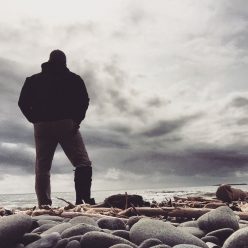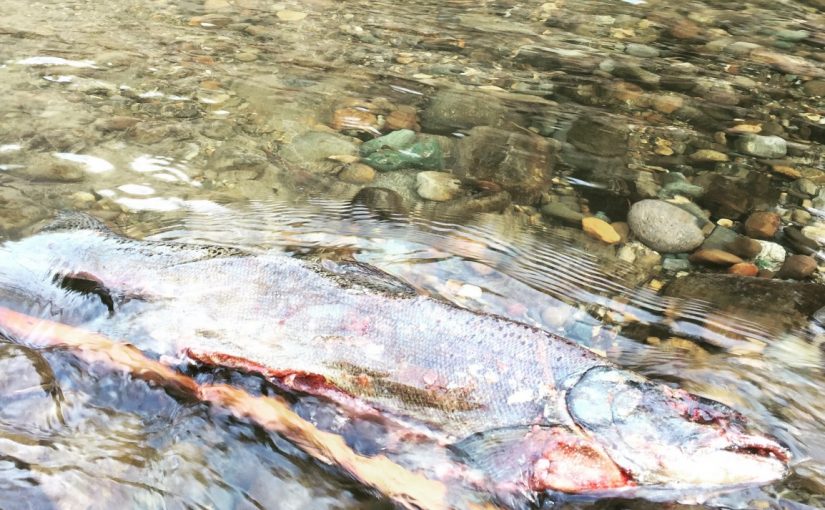*Here is a video to watch, this was shot by me in 2015 on board a salmon Purse Seine vessel. This is not indicative of every catch but a good example of what fishing for salmon can look like. Please watch before reading to have a visual as you work though these concepts.*
The crisis facing marine and ocean fisheries around the world is often referred to the Tragedy of the Commons, a theory created by Garret Hardin (1915-2003). “Hardin’s model is based on the notion that land, or other natural resources that are common property, will be overexploited and destroyed by the competing individual interests of the users”. (Longo, Clausen, and Clark 9).
This has surely been the dominant framework used by managers and governments to set fishing quotas in the past and present. In the book the Tragedy of the Commodity, the authors charter a new course of action, one that views fisheries as the Tragedy of the Commodity, not the commons.
In the theory of the commons, managers see all individuals as opportunistic people solely focused on their selves and families, the tragedy of the commons is an economic theory rooted in the “cold war mentality of its time” (Longo, Clausen, and Clark 9). The downfall of the commons is that it makes far-reaching assumptions about social behaviors, and capitalizes on those behaviors to curb over fishing.
This theory of the commons leads managers into troubling relationships economically, ecologically, and socially with the fisheries and people. The main tools used by managers in this model seeks to rectify the tragedy of the commons, by privatizing the industry though the use of ITQ’s or Individual Transferable Quotas, and my using the concept of Maximum Sustainable Yields.
As stated by biologist Peter A. Larkin “The dogma was this: any species each year produces a harvestable surplus, and if you take that much, and no more, you can go on getting it forever and ever (Amen)” (Larkin I). In other words we can harvest all the surplus of a certain fish species without any consequences in fish re-population. Economically the fisheries industry needs to maximum its catch quota while also leaving a viable population to continue to harvest. Can you point to the problem yet?
Because of competing interest, through various private industries, fish managers have an obligation to those interests and to help maximize their profit. If anything this only adds to the tragedy of the commons, it creates an industry that promotes over fishing for the sake of economics.
To offset this tragedy of the commons theory, and Maximum Sustainable Yields, mangers use the tool of individual transferable quotas. “The specific purpose of an ITQ is to solve the problem of fisheries overexploitation and fleet overcapitalization…The ITQ solution assumes that self-interest will discipline fisheries by providing fishers with individual private rights to harvest specified portions of fish stocks or quotas” (Longo, Clausen, and Clark 46). In other words certain established fishermen are guaranteed a certain allotment of fish, this can be caught at any point in the year. These promised quotas, become a commodity themselves. An ITQ can be bought, or sold; essentially you are commodifying the right to fish.
ITQ’s further the ecological instability of fish species, by reducing them to a single transaction that can be cashed in at any time. It does not take into consideration that fish populations are better fished at certain periods of the year, or that there need to closed seasons for rest and re-population. ITQ’s also favor some fishers over others and does not create an equitable system.
As far as I am aware though Washington State does not use ITQ’s as a tool in salmon management. Speaking only of salmon, other species can be managed differently, in Washington we set a hard quota and firm fishing dates; we have open and closed seasons and no fisher person is promised a certain catch count. Washington salmon management is measured with MSY’s so we still buy into the tragedy of the commons by trying to maximize economic opportunity while also maximizing conservation.
As you can start to see, and will further see, you cannot maximize one and expect to maximize the other. These two forces of economic interest and conservation interest are battling for the future of fish management and ocean harvests. One will have to prevail at the cost of the other, and that where we start to talk about the tragedy of the commodity.
Works Citied
Longo, Stefano, Rebecca Clausen, and Brett Clark. The Tragedy of the Commodity: Oceans, Fisheries, and Aquaculture. New Brunswick, NJ: Rutgers UP, 2015. Print.
Larkin, Peter A. “An Epitaph for the Concept of Maximum Sustained Yield”. Transactions of the American Fisheries Society. Vol. 106, no. I. 1997: I

